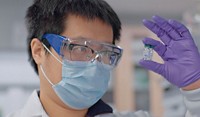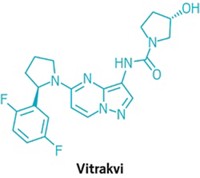Advertisement
Grab your lab coat. Let's get started
Welcome!
Welcome!
Create an account below to get 6 C&EN articles per month, receive newsletters and more - all free.
It seems this is your first time logging in online. Please enter the following information to continue.
As an ACS member you automatically get access to this site. All we need is few more details to create your reading experience.
Not you? Sign in with a different account.
Not you? Sign in with a different account.
ERROR 1
ERROR 1
ERROR 2
ERROR 2
ERROR 2
ERROR 2
ERROR 2
Password and Confirm password must match.
If you have an ACS member number, please enter it here so we can link this account to your membership. (optional)
ERROR 2
ACS values your privacy. By submitting your information, you are gaining access to C&EN and subscribing to our weekly newsletter. We use the information you provide to make your reading experience better, and we will never sell your data to third party members.
Investment
At J.P. Morgan Healthcare Conference, a slow start to biotech and pharma M&A
Insiders still expect big dealmaking in 2020 despite an uneventful meeting
by Ryan Cross , Megha Satyanarayana
January 17, 2020
| A version of this story appeared in
Volume 98, Issue 3

The annual J.P. Morgan Healthcare Conference in San Francisco is designed to kick-start the year for the biotech industry. This year it provided more of a nudge.
Dozens of biotech start-ups announced raising series A or follow-on financings, especially in the fields of immuno-oncology and DNA sequencing. But by and large, this year’s meeting was noteworthy for its dearth of big announcements.
The largest deals revealed shortly before and during the meeting barely broke $1 billion. Incyte agreed to buy a CD19-targeted antibody for blood cancers from MorphoSys for $900 million. And Eli Lilly and Company announced it would pay $1.1 billion to acquire Dermira and its experimental dermatitis antibody lebrikizumab.
“What happens at JPM sets the tone for the biotech sector,” said Kinam Hong of Sofinnova Partners, a life sciences–focused venture capital firm.
But perhaps the lull was only temporary as corporate cash went to pay for sky-high San Francisco hotel prices. A report released during the meeting by the consulting firm EY said life sciences dealmaking reached an “unprecedented” $357 billion in 2019. That sum was supported by megadeals including Bristol-Myers Squibb’s acquisition of Celgene and AbbVie’s purchase of Allergan.
And Mitchell Gold, founder of Alpine BioVentures, still expects 2020 to be a big year for consolidation. “J.P. Morgan is not some line in the sand that you need to get deals done by,” he said. The combination of big pharma’s cash stash and the burst of innovation by biotech firms could mean more acquisitions throughout 2020, he added.
In fact, biotech acquisition activity in the $2 billion–$10 billion range “has never been stronger,” according to a report that PwC released during the meeting. Such bolt-on deals will likely remain popular in 2020, the report adds.
Biotech and pharma leaders at the meeting said they expect immuno-oncology, cell therapy, and gene therapy to continue to be hot in 2020, as they have been for the past 2 years.

“The cell and gene therapy space is just starting to take off,” explained Andrew Plump, president of R&D at Takeda Pharmaceutical. Plump has expanded Takeda’s interest in cell therapy through biotech and academic partnerships and in gene therapy through its $62 billion acquisition of Shire a year ago. Takeda is looking to strike more deals in gene therapy, particularly to improve and expand on the viral and nonviral vectors used to deliver genes.
Another area ripe for investment is therapies that target neurological niches, such as rare, genetically driven neurodegenerative diseases. “Keep an eye on neuroscience,” said Michael Ehlers, chief scientific officer of Apple Tree Partners and former head of R&D at Biogen. “I think it is the next oncology.”
Pharma leaders are also keeping an eye on artificial intelligence. “We are seeing more companies come forward with AI approaches to drug discovery and development,” said Rupert Vessey, president of research and early development at BMS. “I think it can be incredibly valuable when applied in the right circumstances.”
Although “push-button” drug discovery is still a long ways off, the next few years could validate AI as a tool for drug discovery, said Pearl Huang, a venture partner at Flagship Pioneering and CEO of Cygnal Therapeutics. “Any AI or computational effort needs good data. Good data comes from doing good biology,” she said.
Clive Wood, the global head of discovery and research at Boehringer Ingelheim, said AI is overhyped, but he does see opportunities, especially for medicinal chemistry. Wood is particularly excited about applying computational tools to new small-molecule modalities like targeted protein degraders. “The past 2 decades have been the decades of biologics,” he said. “I think we’re entering a new era for small molecules.”
Correction
This article was updated on Feb. 4, 2020, to include a bonus podcast and its script about the J.P. Morgan Healthcare Conference.





Join the conversation
Contact the reporter
Submit a Letter to the Editor for publication
Engage with us on Twitter